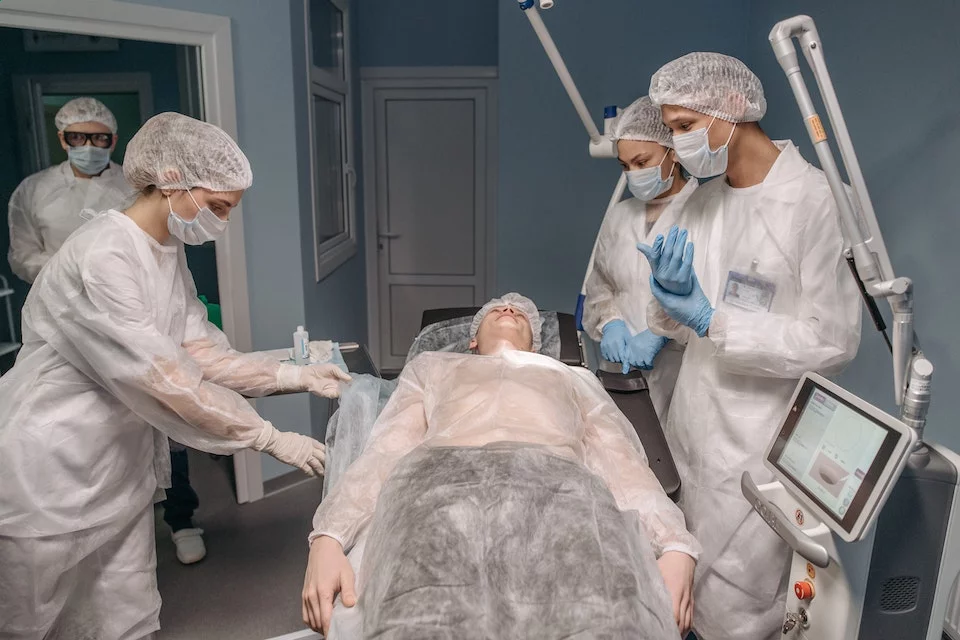Inpatient Drug Rehab Facilities Accept Cigna Insurance
“Drug rehabs that accept cigna”
Around 15 million people are insured by Cigna, one of the top health insurers in the country.
These people make up a large portion of the over 40 million Americans who are affected by substance use disorder (SUD).
You can use your Cigna insurance to pay for all or part of your drug addiction treatment if you or a loved one is struggling with drug or
alcohol use, whether you’ve been fighting addiction for a long time or are just now beginning to understand how much it’s affecting your life.
Your precise plan type will determine the exact extent of your coverage, but Cigna insurance can drastically lower out-of-pocket expenses.
What Sort Of Treatment Is Covered By My Cigna Insurance?
Almost all methods of therapy for drug addiction are at least partially covered by Cigna.
Programs for alcohol and drug treatment covered:
1.Amenities In Drug Rehab Centers
You deserve the comfort and peace of mind that comes from knowing that the experience will be as comfortable as possible when you or a loved one decides to take the crucial step of seeking out alcohol or drug rehab.
According to the quality of care and other considerations, this is why the majority of alcohol and drug recovery centers have amenities.
These comforts can enhance the patient experience and even help with the real long-term healing process.
In addition to making patients feel more comfortable, they can foster new hobbies, assist patients discover their potential for learning new abilities, and offer many other advantages.
RELATED : Cigna rehab provider network
Why Are Amenities Important in Drug Rehabilitation?
People who seek treatment for drug addiction are physically and emotionally weakened by their addiction.
Any degree of coziness and warmth speeds up the healing process, gives patients a sense of security, boosts their self-esteem, and improves their quality of life just when they need it most.
When you’re battling drug addiction, these amenities can help you feel at home and give you the chance to feel “normal” and cared for.
Whether you need a place to do your laundry, a hot, wholesome meal, or just some time away from your addiction, these amenities can enhance your rehab experience.
They also allow patients a chance to connect over a hobby or interest and aid in the development of a sense of community and support.

Drug rehabs that accept cigna
2. Sober Living/Halfway House Drug Rehab Centers
Your family life and financial security are only two of the many areas of your life that addiction can damage.
This frequently relates to your living circumstances, and you can very well discover that you have nowhere stable to live after your quick recuperation.
As you or a loved one makes the transition from treatment to long-term recovery, sober living offers a secure, encouraging, and stable living environment.
Sober living facilities offer consolation, assistance, stability, and accountability to help you or a loved one stay on track with their recovery.
3.Partial Hospitalization PHP Drug Rehab Centers
Partial Hospitalization Program is referred to as PHP.
This rehabilitation strategy combines the adaptability of routine and intensive outpatient care with, in some situations, the choice of sober life.
It provides in-depth behavioral therapy to address the causes and triggers of addiction as well as complete medical care for any acute health complications related to substance use disorder.
PHP rehab is frequently covered by insurance, but it’s crucial to thoroughly verify to make sure the facility you’re thinking about is covered.
PHP rehab may be the best choice if you or someone you care about needs assistance with alcohol or drug addiction.
What Contains PHP Rehab?
PHP rehabilitation typically lasts six to eight weeks.
Patients often participate in five sessions each week, lasting between four and six hours each.
Group therapy, one-on-one counseling, and a variety of additional therapies are all included in the sessions.
These treatments may include Cognitive Behavioral Therapy (CBT), Dialectical Behavioral Therapy (DBT), and others, depending on the sort of facility you select.
These treatment approaches are designed to assist you or a loved one reconstruct your life after recovery while addressing the psychological aspects of addiction that exist in real life.
They can assist you in creating the coping skills you need to fend against temptation and potential relapse.

Drug rehabs that accept cigna
4.Short-Term Drug Rehab Centers
For people who are on the verge of reliance and need to increase their awareness and knowledge levels in order to escape the dangers of addiction, short-term drug rehab programs may be the best choice.
Along with counseling and therapy, short-term drug rehabs frequently offer detoxification and symptom management services to assist you or a loved one in addressing the behavioral aspects of your dependency.
Your ability to acquire self-awareness and coping skills to maintain success in recovery is aided by short-term addiction treatment.
Short-term rehab can serve as a transition to long-term recovery and more intensive therapy programs, even though many patients require a more focused and in-depth degree of care for their alcohol or drug addiction.
5.Long-Term ( 30-60-90 Days) Drug Rehab Centers
Programs for long-term alcohol and drug treatment are intended for those who require significant, all-encompassing assistance with the various elements of their lives that have deteriorated as a result of their substance abuse.
This covers their physical and mental well-being as well as the effects of their addiction on their way of life.
Long-term treatment programs may also help patients with long-term chronic health conditions related to their alcohol or drug use
or help them relearn life skills that have been lost as a result of their active substance misuse in addition to providing a baseline level of care through detox and rehab.
As patients progress through the program, long-term treatment offers several “step-down” levels of care, as well as frequently sober living resources and family education.

Drug rehabs that accept cigna
RELATED : Cigna rehab provider network
What Takes Place During Long-Term Alcohol and Drug Rehabilitation?
There is a reason why long-term treatment takes time.
In order to restore their health, rebuild their lives, and lessen the triggers that can cause relapse, patients collaborate with their care team to identify and address every component of their addiction.
Without a solid support system, the early phases of recovery can be quite challenging, and it is very simple to relapse.
Long-term treatment helps you develop coping mechanisms to avoid setbacks in high-stress situations and tackles the medical and behavioral aspects of substance use disorder.
You can continue your recovery with long-term treatment because it offers the consistency, routine, and high-quality care you require.
6.Intensive Outpatient Treatment (IOP) Drug Rehab Centers
In comparison to standard outpatient treatment, intensive outpatient (IOP) drug rehab offers a longer and more intensive level of care.
Although the schedule for each facility’s IOP program varies, these programs typically run three to five days per week and last for about three months, depending on the patients’ development and ongoing care requirements.
IOP often includes individual counseling, group therapy, and additional therapies including cognitive behavioral therapy (CBT).
For you or a loved one, IOP is frequently covered by insurance and Medicaid, making treatment more inexpensive.
To discover IOP therapy in your region, get in touch with a member of our admissions staff.
7.Residential Inpatient Drug Rehab Centers
Receiving assistance at an inpatient treatment center is part of inpatient addiction therapy for a substance use disorder.
You can recover in this setting, free from the negative influences brought on by your substance abuse.
To assist you or a loved one in overcoming your withdrawal symptoms, they frequently incorporate on-site medical detoxification or coordinated referral arrangements with neighboring hospitals.
Additionally, they consist of thorough behavioral rehab to address the causes and triggers of your addiction. Typically, inpatient drug rehab lasts a week, 30 days, or even 90 days or more.

Drug rehabs that accept cigna
8.Medical Detox Drug Rehab Centers
Most frequently, detox, also known as detoxification, is a crucial part of a thorough and successful addiction treatment program.
When someone initially enters rehab, detox helps them control their withdrawal symptoms so they can stay sober long enough to attend and traverse behavioral therapy.
Our central nervous system, as well as our organs like the heart and liver, are put under a great deal of stress throughout the detoxification process.
A qualified, experienced medical team (doctors and nurses) must administer detox; this is crucial not just to ease uncomfortable withdrawal symptoms but also to keep an eye on you and be prepared in case of a medical emergency.
RELATED : Cigna rehab provider network
How much time does detox take?
Depending on the substance, the severity of the withdrawal symptoms, and the degree of dependency, medical detox often lasts three to 10 days.
In simplest terms, the detoxification process will be more difficult the longer you have used alcohol and/or drugs.


Leave a Comment